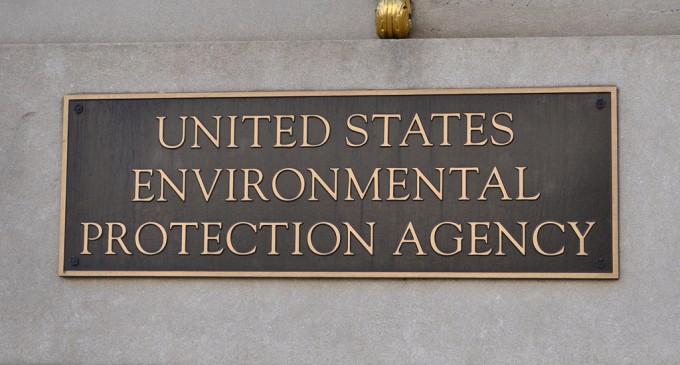
The EPA is about to unleash a huge amount of regulations that would expand their power far beyond what it ever has.
This would include giving them power over water on private property.
“The EPA’s draft water rule is a massive power grab of private property across the U.S. This could be the largest expansion of EPA regulatory authority ever,” Texas Republican Rep. Lamar Smith. “If the draft rule is approved, it would allow the EPA to regulate virtually every body of water in the United States, including private and public lakes, ponds and streams.”
Happy holidays from the Obama administration. Federal agencies are currently working on rolling out hundreds of environmental regulations, including major regulations that would limit emissions from power plants and expand the agency’s authority to bodies of water on private property.
On Tuesday, the White House released its regulatory agenda for the fall of 2013. It lists hundreds of pending energy and environmental regulations being crafting by executive branch agencies, including 134 regulations from the Environmental Protection Agency alone.
The EPA is currently crafting 134 major and minor regulations, according to the White House’s regulatory agenda. Seventy-six of the EPA’s pending regulations originate from the agency’s air and radiation office, including carbon-dioxide-emission limits on power plants.
Carbon-dioxide limits are a key part of President Barack Obama’s climate agenda. The EPA is set to set emissions limits that would effectively ban the construction of new coal-fired power plants unless they use carbon capture and sequestration technology. Next year, the agency will move to limit emissions from existing power plants — which could put more older coal plants out of commission.
“The proposed standards, if finalized, will establish achievable limits of carbon pollution per megawatt hour for all future units, moving the nation towards a cleaner and more efficient energy future,” the agency said in its agenda. “In 2014, EPA intends to propose standards of performance for greenhouse gas emissions from existing and modified power plant sources.”
Hundreds of coal plants that have been closed or slated for early retirement due to Environmental Protection Agency regulations, according to coal industry estimates.
“Already, EPA regulations have contributed to the closure of more than 300 coal units in 33 states,” said Laura Sheehan, spokeswoman for the American Coalition for Clean Coal Electricity.
However, the agency isn’t just working on limiting emissions from coal plants. The EPA is also working on a rule that would expand the definition of “waters of the U.S.” under the Clean Water Act to include water on private property.
Republicans have hammered the EPA’s draft water rule as the largest expansion of agency power in history.
“The EPA’s draft water rule is a massive power grab of private property across the U.S. This could be the largest expansion of EPA regulatory authority ever,” Texas Republican Rep. Lamar Smith. “If the draft rule is approved, it would allow the EPA to regulate virtually every body of water in the United States, including private and public lakes, ponds and streams.”
The EPA’s rule is heavily supported by environmentalists who argue that it’s necessary to protecting water quality. Smaller water sources, they argue, eventually affect larger water sources that people use for recreation or their livelihood.
“It’s taking the way the Clean Water Act works back, so that it works the way water works in the real world,” Bob Wendelgass, president and CEO of Clean Water Action, told Fox News.

Thanks, Nixon. Get rid of the EPA.
Defund EPA, a useless government agency.
God help us
destroy EPA